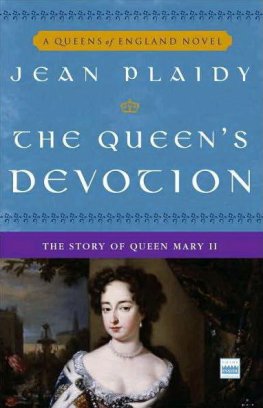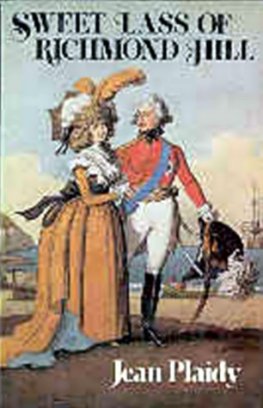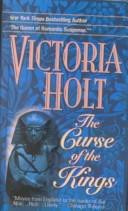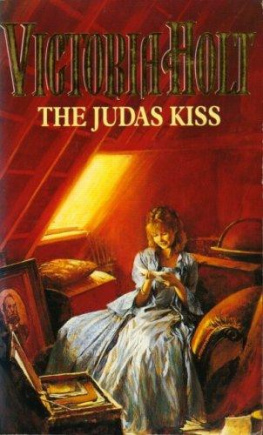Victoria Holt
The Pride of the Peacock
I was quite young when I realized that there was something mysterious about me, and a sense of not belonging came to me and stayed with me.
I was different from everyone else at the Dower House.
It became a habit of mine to go down to the stream which ran between the Dower House and Oakland Hall, and gaze into its clear waters as though I hoped to find the answer there. That I chose that particular spot was somehow significant. Maddy, who was a general servant and a sort of nurse to me, found me there once and I shall never forget the look of horror in her eyes.
Now why do you want to come here. Miss Jessica? she demanded.
If Miss Miriam knew shed forbid it Mystery again 1 What was wrong with the pleasant stream and pretty bridge which crossed it? It was especially attractive to me because on the other side of it loomed the magnificent grey walls of Oakland Hall.
I like it here, I retorted stubbornly; and as forbidden fruit could never have tasted sweeter to anyone than it did to me, having discovered that there was some reason why I should not go to the stream, I went there all the more.
Its not right for you to go there so much, insisted Maddy. I wanted to know why. This was characteristic of me and resulted in Maddys calling me Miss Why, Where, and What.
Its morbid, thats what it is, she declared.
Ive heard Mr. Xavier and Miss Miriam say so. Morbid!
"Why?
There we go! said Maddy.
It is. Thats why, and dont keep going there.
Is it haunted? I asked.
It might well be that.
So thereafter I went often to the stream and sat on its banks and thought of its rising in the mills and meandering through the country, widening as it went into Old Father Thames and, with that mighty companion, finally flowing into the sea.
What danger could there be? I asked myself. Shallow except when there were heavy rains, it was pellucid, and looking down I could see the pebbles on its brownish bed. A weeping willow drooped on the opposite bank. Weeping for something? I pondered. Something morbid?
So in those early days I would come to the stream and dream mainly about myself, and always the theme of my wonderings was: You dont really belong to the Dower House.
Not that the thought disturbed me. I was different and wanted to be.
My name for one thing was different. It was in fact Opal Opal Jessica and I often wondered how my mother had come to give me such a frivolous name, because she was a far from frivolous woman. As for my poor sad father, he would surely have had no say in the matter; a cloud hung over him as sometimes I fancied it hung over me.
I was never called Opal, so when I talked to myself I sometimes used it, and I talked to myself a good deal. This was no doubt due to the fact that I was so much alone; and thus I became conscious of the mystery about me which was like a mist through which I could not see.
Maddy occasionally shone a little light through the mist, but it was only the faintest glimmer and often had the effect of making everything more obscure.
In the first place I had this name which nobody used. Why give it to me if they didnt intend to use it? My mother seemed very old; she must have been in her forties when I was born, and my sister Miriam was fifteen years older than I and my brother Xavier nearly twenty; they never seemed like brother and sister to me. Miriam served as my governess, for we were too poor to engage one. In fact our poverty was the remorseless theme of our household. I had heard countless times of what we had had in the past and now had no longer, for we had come sliding down in the world from the utmost luxury to what my mother called penury.
My poor father used to cringe when she talked of Better Days, that time when they had been surrounded by myriads of servants and there had been brilliant balls and elegant banquets. But there was always enough to eat at the Dower House, and we had Poor Jarman to do the garden and Mrs. Cobb to cook and Maddy as maid of all work, so we werent exactly penniless. As my mother always exaggerated about our poverty, it occurred to me that she did the same about past riches and I doubted that the balls and banquets had been as grand as she implied.
I was about ten years old when I made a portentous discovery. There was a house party at Oakland Hall, and the grounds on the other side of the stream were noisy with the hearty voices of people. From my window I had seen them riding out to hounds.
I wished they would invite me to call, for I longed to see the inside of the big house. True, I could catch glimpses of it from my side of the stream in winter when the denuded oaks no longer shielded it, but I could see no more than its distant grey stone walls and they fascinated me. There was a winding drive of about half a mile so it was impossible to see the house from the road either, but I had promised myself that one day I would cross the stream and, with great daring, approach.
I was in the schoolroom with Miriam, who was not the most inspiring of teachers and was frequently impatient with me. She was a tall, pale woman, and as I was ten years old she must have been twenty-five. She was discontented-they all were because they could never forget those Better Days and sometimes she looked at me with cold dislike. I could never think of her as my sister.
On this day when the hunting party-guests from Oakland Hall came riding past I got up and ran to the window.
Jessica, cried Miriam, what ore you doing?
I only wanted to see the riders, I replied. She gripped my arm, none too gently, and dragged me from the window.
They might see you, she hissed, as though that would be the depth of degradation.
What if they did? I demanded. They did see me yesterday. Some of them waved and others said Hello.
Dont dare to speak to them again, she said fiercely.
Why not?
Because Mama would be angry.
You talk about them as though theyre savages. I cant see what harm there is in saying Hello to them.
"You dont understand, Jessica.
How can I when nobody tells me?
She hesitated for a moment and then as though she was considering that a little indiscretion was credible if it saved me from the mortal sin of being friendly towards the guests from Oakland Hall, she said:
Once Oakland Hall was ours. That can never be forgotten.
Why isnt it ours now ?
Because they took it from us.
"Took it from us? How?
I immediately visualized a siege, Mama militant and dominating, commanding the family to pour down boiling oil from the battlements upon the wicked enemy who were coming to take our castle, Miriam and Xavier obeying without question and my father trying to understand the other side of the case.
They bought Oakland Hall.
Why did we sell it then ?
Her mouth hardened.
Because we could no longer afford to live there.
Oh, I said, penury. So it was there that we had our better days.
You never had them. It all happened before you were born. I lived my childhood at Oakland Hall. I know what it means to come down in the world.
As Ive never had better days, I dont. But why did we become so poor?
She would not answer that. All she said was: So we had to sell to those barbarians. We did, however, keep the Dower House. It was all that was left to us. So now you see why we do not want you so much as to notice those people who have taken our house.
Are they really barbarians savages?
Not much better.
They look like ordinary people.
Oh, Jessica, you are such a child! You dont understand these things and therefore you would be wise to leave them to your elders, but now at least you know that we once lived in Oakland Hall and perhaps you will understand why we do not want you to go about staring like a peasant at the people you see coming from there. Now, its time for our algebra lesson and if you are going to have the slightest education you must pay more attention to your books.






